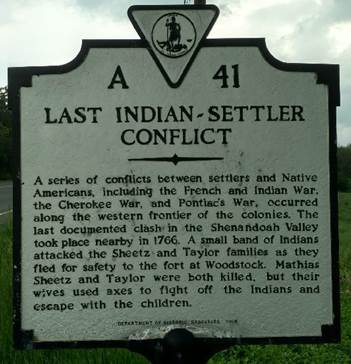This Sunday we celebrate a special day as we remember all mothers. Each mother is an extraordinary creation of God and no other person ever takes the place of a child’s mother. Her influence continues in the life of her children long after they are grown and even after her death. I continue to be very grateful for the wonderful mother that God provided for me.
The job of a mother is undoubtedly one of the most difficult in existence. As Proverbs 31 describes, many moms awake long before dawn to prepare their families for the day. They help children get ready for the bus, husbands for their work, and themselves for their own occupations. Again at night, they are often the last ones to bed making sure all are tucked in and the house is in order.
Motherhood also involves protecting one’s children and a story from valley history illustrates to what great lengths mothers are willing to go to do so. In 1766, exact date unknown, Matthias and Barbara Sheetz quickly gathered their eight children into a wagon, and along with the Taylor family, rushed from their home on Narrow Passage to the fort at Woodstock to escape a possible Indian attack.
As they made their way toward the fort, five Indians overtook the families and killed the two men. When the Indians tried to pull one of the Sheetz children from the wagon, Barbara fought them off with an axe and saved her child. Although their husbands died, the two mothers made it safely to the fort with their children and avoided further bloodshed. A roadside plaque on Route 11 near Narrow Passage commemorates this tragedy and recognizes the heroism of Barbara Sheetz.

Records indicate that this brave mother was only thirty-six at the time and her eight children ranged in age from three to eighteen. As a single mom, she now faced the enormous challenge of raising these children on her own. Before the aid of subsidies, pension, or other public assistance, she tackled this monumental challenge on the nation’s early frontier and did what she had to do.
The Sheetz family owned and operated a grist mill near their cabin on Narrow Passage Creek just off today’s Sheetz Mill Road. Barbara and her children ground grain into flour for their neighbors. This, in addition to their farming enterprises, enabled her to survive and raise all eight children to adulthood. That was no small fete for a single mother in the mid-1700s.
Most of the attention for the Sheetz family centers around the raid at Narrow Passage and Barbara’s bravery in protecting her children as well as the sacrifice of the men whose bodies were later found and buried. But the heroic effort shown by Mrs. Sheetz in returning to the homestead and raising her young family in the ensuing years was no less commendable and perhaps more so.
We can only imagine what challenges she faced there during years of drought and scarcity. In addition, there were almost certainly other Indian scares and we wonder how many sleepless nights she spent watching over her children. Did she suffer from depression having witnessed the violent death of her husband or become overwhelmed by the daunting task of single motherhood? We don’t know. Apparently she didn’t keep a diary and even if she did, it has been lost.
But her bravery and perseverance in the face of great odds serve as an early example of what most all mothers continue to do today. Even though few are called upon to fend off their children’s potential attackers, most moms are ready to do so if necessary. And most, whether married or single, work diligently to provide for the wellbeing of their families.
As we celebrate mothers this weekend, be sure to thank God for the one He put in your life and reach out to encourage all the mothers you know. Each of them does heroic work and deserves our thanks for doing so.
Blessings, George